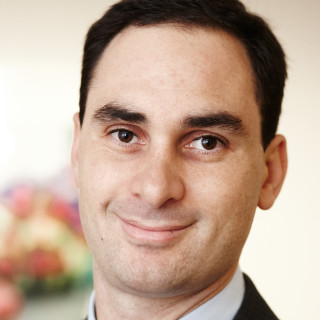I will start out with a confession. I am sitting in “class” at the American Association of Clinical Endocrinology (AACE) Annual Meeting in Boston while I am writing this article, but I am also paying attention (us doctors are always multitasking).
I have attended this conference for the last 8 years, and every year I walk away with newfound knowledge that helps me become a better doctor. In a nerdy way, being back in a classroom style of setting is invigorating. We all spent many hours in school, which at the time the majority of us were eager to put behind us, but there is something familiar and special about being back in an education setting to learn for the benefit of our patients.
I am biased, of course, but attending this conference is a reminder that Endocrinology is so complex and fascinating. Therefore, there is no shortage of interesting topics to cover. I wish I could attend all the lectures, but that is an unattainable goal. I must applaud AACE (or I should say @theAACE) for ramping up its social media game so that I can at least get highlights from the talks that I cannot attend. As a member of AACE, I’m proud to state that #AACE2018 was trending on Twitter at one point during the conference (I was actually approached and asked to write this article for Doximity because I was tweeting using the conference hashtag).
As I sit in the aforementioned lecture titled “Social Media in Medicine,” I decided to put together my thoughts on some of the key takeaways from this year’s meeting.
Rise of Technology
One of the major take home points for me is that medicine, like everything else, is being driven by and towards further immersion in technology. As I just stated, I had the opportunity to attend a talk about social media. We covered topics such as how doctors can use social media to educate patients and each other, some of the pitfalls of using social media, and how some of this data is being tracked (I guess there is such a thing as influencers in medicine).
One of my other favorite talks of the conference was “Evolution of Diabetes Technology: Towards Closed Loop in Our Practice.” As the title indicates, this covered the most recent advances in insulin pumps and continuous glucose monitors (CGM). The advent of these tools has changed the management of diabetes. It was stated that, we are now more interested in the time in the target glucose range than in the hemoglobin A1c. This is certainly a shift based on the tremendous amount of glucose data points that are captured by CGM. I walked out of this lecture thinking that until there is a cure for type 1 diabetes, having this technology is the next best thing.
Speaking about technology, there was a chance to experience how virtual reality may be coming to our clinical settings soon! I sat in an office chair in the exhibit hall wearing a VR headset and cruised through the pancreas and saw a 3D image of the thyroid. If you haven’t experienced VR, I highly recommend it.
A Common Bond
While I have not attended other medical conferences, I am going to take a guess that there are some similarities. In every single presentation, there are attendees on their electronic medical records checking labs, messages, etc. (technology again). This is a double edge sword; it is nice to stay on top of work remotely but it also makes it difficult to really take a break from our clinical responsibilities. Observing this trend is a reminder that we always have a to-do list, which basically means there are always patients to take care of.
Conversations around the conference often focus on money, patient volume, work environment, and of course challenging clinical cases. These conversations are often the highlight of the conference. Our common bond is that we are physicians trying to practice Endocrinology the best way that we can as we face the usual challenges. We are hearing the statistic that around 50% of physicians are reporting burnout; I believe that having these conversations (or venting sessions) with our colleagues is imperative to our mental health.
On a personal note, I try to walk the walk, so-to-speak, as I discuss with my patients. I call them the 4 pillars of health: physical activity, healthy eating, stress management, and sleep. My observations while at the conference demonstrated that my colleagues are trying to do the same thing. I am always happy to see that the gym is packed early in the morning with my colleagues. I attended a fabulous nutrition lecture where one of the speakers presented his own clinical case whereby he adopted a mostly plant based diet and dramatically improved his metabolic health. There is a meditation room, which is a recent practice for me after I took a mindfulness based stress reduction class. This was a game changer for me. As for sleep, I’m actually pretty wiped out after several full days of the conference. Oh well, 3 out of 4 pillars isn’t bad.
I’m on the train back to New York City now, and I am already looking forward to next year’s conference.
Dr. Gregory Dodell is an endocrinologist who specializes in diabetes and nutrition.







